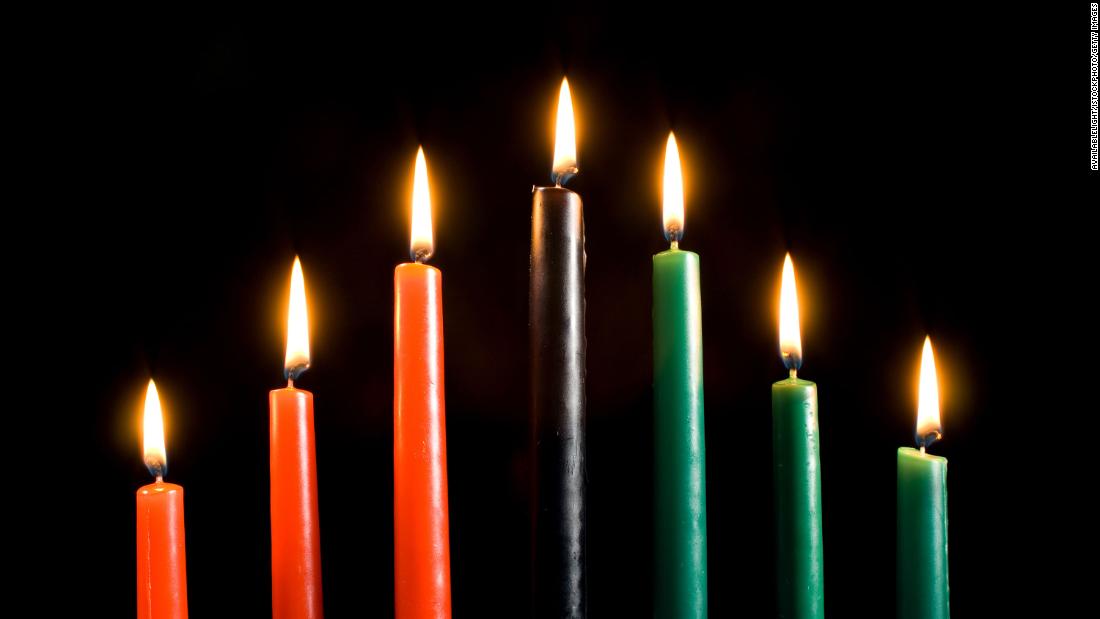- by foxnews
- 16 Mar 2025
The seven principles of Kwanzaa

Christmas might be over, but Kwanzaa is just getting started.
December 26 marked the start of Kwanzaa, also spelled Kwanza (with one 'a' at the end). It's a seven-day non-religious holiday observed in the US, meant to honor African Americans' ancestral roots. The celebration lasts until January 1.
The name comes from the Swahili phrase "matunda ya kwanza," which means "first fruits."
Created in 1966 by Maulana Karenga, a Black nationalist and professor of Pan-African studies at California State University at Long Beach, Kwanzaa became popular in the 1980s and 1990s in tandem with the Black Power movement - making up the trio of winter holidays along with Hanukkah and Christmas.
The holiday is defined by Nguzo Saba, or the seven principles. Each day of the festival is dedicated to a specific principle, marked by lighting a new candle on the kinara, a seven-branched candelabra.
Even though Kwanzaa isn't as widely celebrated as it used to be, its seven principles still hold true for some. Here's a look at what those principles are, and what they mean.
Umoja means unity in Swahili.
Karenga defines this on his Kwanzaa website as: "To strive for and maintain unity in the family, community, nation and race."
Or self-determination. This principle refers to defining, naming, creating and speaking for oneself.
Translated as "collective work and responsibility," ujima refers to uplifting your community.
"To build and maintain our community together and make our brother's and sister's problems our problems and to solve them together," Karenga writes.
Cooperative economics. Similar to ujima, this principle refers to uplifting your community economically. "To build and maintain our own stores, shops and other businesses and to profit from them together," he writes.
Nia means purpose.
Karenga expands on this principle with, "To make our collective vocation the building and developing of our community in order to restore our people to their traditional greatness."
Meaning "creativity," Karenga defines this principle as "To do always as much as we can, in the way we can, in order to leave our community more beautiful and beneficial than we inherited it."
The final principle translates to "faith."
Karenga defines this as faith in community, writing, "To believe with all our heart in our people, our parents, our teachers, our leaders and the righteousness and victory of our struggle."
- by travelandtourworld
- descember 09, 2016
Orlando, Miami, Tampa, and Pittsburgh Airports Brace for Record Spring Break Travel as Millions Set to Fly with United, Spirit, Southwest and More from US to UK, France, Spain, Italy, Japan, and Aruba: New Report
Orlando, Miami, Tampa, and Pittsburgh airports are preparing for an unprecedented surge in travelers this Spring Break 2025, as millions are expected to fly to top destinations worldwide. United, Spirit, and Southwest Airlines, among others, are increasing flight operations to accommodate passengers traveling from the U.S. to the UK, France, Spain, Italy, Japan, and Aruba. With record-breaking crowds, soaring demand, and rising travel costs, this spring break season is set to be one of the busiest ever. Airports and airlines are implementing strategies to manage the surge, while experts advise travelers to plan ahead for a smoother journey.
read more


